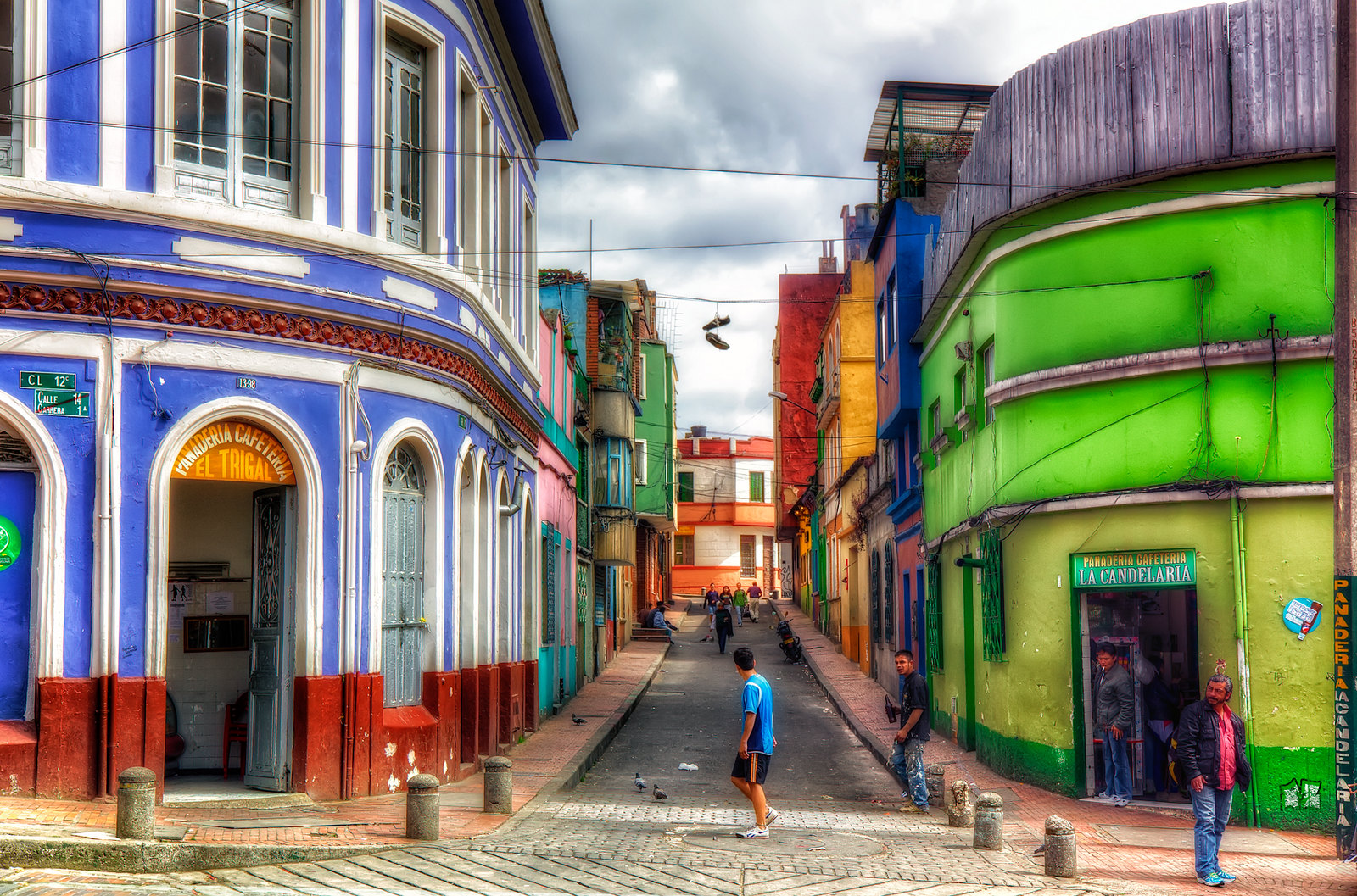Evidence from a Quasi-Experiment in Colombia

A colorful street in La Candelaria, the old part of Bogota, Colombia. Credit: Pedro Szekely on Flickr
This study examines whether class diversity affects preferences for redistribution and academic performance by measuring whether exposure to poor individuals affects rich individuals’ perceptions of inequality and poverty, beliefs of social justice, redistributive preferences, and academic outcomes. This is measured in the context of an elite university in Colombia, where the number of poor students jumped at an unprecedented rate due to the introduction of a financial aid program. Results show significant positive correlations between exposure to poor students and interactions among students with heterogeneous family backgrounds, an increase in perceived inequality, poverty and upward social mobility, a higher perception of meritocracy in college admissions, and a stronger support for redistribution. The study finds no significant effect on dropout rates or GPA, but does find weak evidence that younger students are putting more effort into preparing for the entry exam in reaction to a more competitive admissions process.

